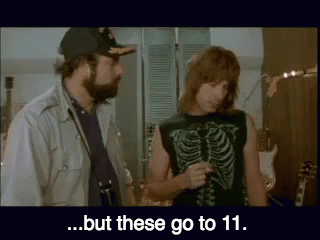I guess it depends on what you think constitutes resignation. Is having a backup plan resignation? How about just answering a slightly different question than the one literally in the title (something we do all the time)? Et cetera.
One thing that might factor in here is that when I hear "should they do this," I don't automatically replace the "they" with Hollywood executives, because as bad as stuff like full screen or motion smoothing (or maybe this) can be, there's usually plenty of demand for it from people in general, who only care that the thing they see have more definition. Still a problem, but I find my posture towards this stuff is different when I think it's coming from a larger group of non-specific people than a small number of powerful ones, if only because the former requires a more diplomatic approach to get anywhere by its very size and nature.
Fortunately, with any contemporary approach, it's very possible to preserve the original, although, in whatever state it is, deteriorated or pristine. It it's an old "film" (as on celluloid), you're going to scan and digitize it, so everything after that will be virtual/digital, easy to back up and walk back if needed.
I don't know who "they" are, but it's hard to think that, looking at an old, faded, color-shifted, missing frame original, if they have bought off on spending money to do this process, they won't have some wish to make it look and sound better.
Whatever you think of the outcome, at least the "original" still exists, in whatever broken or color shifted version it was at the outset.
The one that converted me was the one I mentioned, They Shall Not Grow Old, WW I footage digitized, colorized and sound-added. I was riveted when I saw this. Like any powerful tool, digitizing, editing, colorization, balancing, needs to be used carefully.
